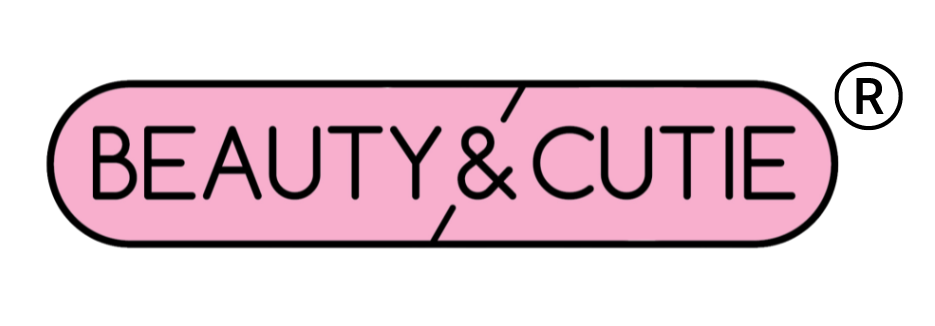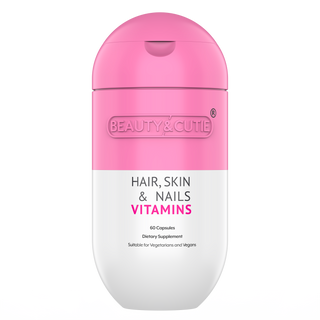Maintaining a healthy diet is crucial for overall wellness, but knowing which foods to incorporate can be tricky. For years, the concept of a low-fat diet was touted as the solution for weight loss and healthy living. However, recent studies have shown that not all fats are created equal. In fact, healthy fats are essential for good health and are necessary for the absorption and storage of certain vitamins. But, what exactly are healthy fats, and how can they benefit our hair and skin? In this blog post, we delve into the importance of healthy fats, the difference between types of fatty acids, and how they can help improve our skin and hair health. Read on to discover the role that healthy fats play in optimizing your diet and overall wellness.
Are All Fats Unhealthy?
No, not all fats are unhealthy. In fact, some fats are essential for good health and necessary for our bodies to function properly. Healthy fats, such as unsaturated fats found in olive oil, nuts, seeds, and fish, provide numerous health benefits, including improved heart health, brain function, and skin and hair health. On the other hand, saturated and trans fats found in foods like butter, cheese, and processed snacks can contribute to health problems such as heart disease and obesity. It's important to choose healthy sources of fat and consume them in moderation as part of a balanced diet.
What Are Healthy Fats?
Healthy fats can be defined as unsaturated fats that are beneficial for good health and are necessary for the absorption and storage of certain vitamins. These fats include monounsaturated and polyunsaturated fats, found in foods such as olive oils, nuts, seeds, and fish.
On the other hand, saturated fats and trans-fats should be avoided or consumed in moderation, as they can lead to health problems such as weight gain and heart disease. Omega-3 fatty acids, which are polyunsaturated and cannot be produced by the body, are essential for cell membrane construction, heart and mental health, infant brain development, weight loss, and fighting inflammation.
Omega-6 fatty acids are also obtained from the diet, but a diet with an excessive omega-6 to omega-3 ratio can lead to chronic inflammatory conditions. Omega-9 fatty acids are monounsaturated and differ from the others in that our bodies can produce them.
Consuming healthy fats in a balanced manner can lead to benefits for skin and hair health, including maintaining moisture, preventing dry skin, preventing acne, combating signs of aging, and promoting hair follicle nourishment.
What Are Some Examples Of Healthy Fats?
Healthy fats include monounsaturated fats and polyunsaturated fats, which can be found in foods like:
Incorporating healthy fats into your diet is crucial for optimizing your overall wellness, including the health of your skin, hair, and nails. But what exactly are healthy fats, and where can you find them? Let's take a closer look.
Healthy fats include monounsaturated and polyunsaturated fats, which can be found in a variety of foods. Some examples of healthy fats include:
- Olive oil: Rich in monounsaturated fats, which can help reduce inflammation and lower the risk of heart disease.
- Nuts: Almonds, walnuts, pecans, and other nuts are great sources of healthy fats, fiber, and protein. They also contain antioxidants that can protect against oxidative stress.
- Seeds: Flaxseeds, chia seeds, and hemp seeds are all rich in healthy fats, fiber, and protein. They also contain essential nutrients like magnesium and calcium.
- Fatty fish: Salmon, mackerel, and sardines are all excellent sources of omega-3 fatty acids, which are essential for heart and brain health.
- Avocado: Rich in monounsaturated fats, fiber, and potassium, avocados are a versatile and nutritious food that can be added to salads, smoothies, and other dishes.
- Coconut oil: While high in saturated fat, coconut oil can be a healthy addition to your diet in moderation. It contains lauric acid, which has been shown to improve cholesterol levels and boost brain
- Dark Chocolate: Dark chocolate is rich in monounsaturated and polyunsaturated fats, which can help reduce inflammation and lower the risk of heart disease. In addition to healthy fats, dark chocolate also contains antioxidants that can protect against oxidative stress.
- Hazelnuts: Hazelnuts are an excellent source of healthy fats, fiber, and protein. They also contain antioxidants that can protect against oxidative stress, which can damage your skin and hair. Consuming hazelnuts in moderation, along with other sources of healthy fats, can help maintain moisture within your skin.
- Olives: Olives are packed with healthy fats, particularly monounsaturated fats, which promote heart health and lower bad cholesterol. They also provide antioxidants that combat inflammation, support brain function, and contribute to a strong immune system.
- Cashews: Cashews are a nutritious source of healthy fats, including heart-healthy monounsaturated fats. They provide essential vitamins and minerals that support immune function and brain health.
- Macadamia Nuts: Macadamia nuts are not only delicious but they are also packed with healthy fats, particularly heart-healthy monounsaturated fats. These essential fats, coupled with magnesium and vitamin B6, provide support for brain function and bone health. Whether enjoyed as a snack or incorporated into recipes, macadamia nuts offer both flavor and nutrition.
- Canola Oil: Canola oil is a healthy fat choice, low in saturated fats and rich in heart-healthy monounsaturated fats. It also provides omega-3 fatty acids for brain health and vitamin E for immune support.
- Peanuts: Peanuts are a nutritional powerhouse packed with healthy fats, including heart-friendly monounsaturated fats. They provide vital nutrients like Vitamin E, magnesium, and protein, which promote immune function and muscle health. Whether you snack on them to fuel you up for the day or add them to your meals, peanuts make for a satisfying and nourishing treat.
These types of fats are important for good health and can help improve the appearance of your skin, hair, and nails. It is important to consume them in moderation and balance them with other nutrients in your diet.
What Are The Differences Between Healthy and Unhealthy Fats?
Not all fats are created equal. Healthy fats, such as unsaturated fats found in olive oil, nuts, seeds, and fish, can be beneficial for our overall health and necessary for the absorption of certain vitamins.
On the other hand, unhealthy fats, such as trans fats found in processed foods, can lead to high blood sugar levels, weight gain, and various health problems. Saturated fats, found in foods like butter, cheese, and red meat, should be consumed in moderation. It's important to consume healthy fats in a balanced way and avoid unhealthy fats altogether for optimal health benefits.
What Are The Recommended Daily Intake Of Healthy Fats?
The recommended daily intake of healthy fats varies depending on your age, gender, and activity level. However, a general guideline is to aim for 20-35% of your daily calories to come from healthy fats. This means consuming around 44-78 grams of healthy fats per day based on a 2000-calorie diet.
It's important to note that not all fats are created equal and to prioritize unsaturated fats over saturated and trans fats. Focus on incorporating sources of healthy fats such as fatty fish like salmon, nuts and seeds, avocado, and olive oil into your diet. As always, it's best to consult with a healthcare professional or registered dietitian to determine the best individualized dietary recommendations for your specific needs and goals.
How Do Healthy Fats Positively Benefit Hair, Skin, and Nail Health?
Healthy fats, such as unsaturated fats found in foods like olive oil, avocados, and fatty fish, are important for good health and can have a positive impact on hair, skin, and nail health. These types of fats contain omega fatty acids, such as omega-3, -6, and -9, which can help maintain the cells in our body, and promote healthy inflammation levels.
Omega-3 fatty acids, which are essential and must come from our diet, can help maintain moisture in the skin and prevent dryness, acne, and aging. They can also nourish hair follicles and reduce the percentage of hair in the resting phase of growth. It's important to consume healthy fats in moderation and to balance them with other nutrients in your diet. A balanced approach can help optimize hair, skin, and nail health, and promote overall well-being.
What Are The Risks Of Consuming Unhealthy Fats?
Consuming unhealthy fats, such as trans fats and saturated fats, can increase your risk of developing a range of health problems. These fats can raise your cholesterol levels, increase your risk of heart disease and stroke, and contribute to the development of type 2 diabetes.
Consuming high amounts of unhealthy fats can also lead to weight gain and obesity. Additionally, a diet high in unhealthy fats can negatively impact your skin and hair health, leading to dryness, acne, and other issues. It is important to limit your intake of unhealthy fats and instead focus on consuming healthier options, such as unsaturated fats found in foods like nuts, seeds, and fish.
Conclusion
In conclusion, healthy fats play a crucial role in promoting hair and nail health. Omega-3 fatty acids, found in foods such as fatty fish, nuts, and seeds, can help maintain moisture in the skin, prevent dryness, and nourish hair follicles. Additionally, consuming healthy fats in moderation can help reduce the risk of developing chronic health conditions such as heart disease and diabetes.
It's essential to prioritize unsaturated fats over saturated and trans fats and to consult with a healthcare professional or registered dietitian to determine the best individualized dietary recommendations for your specific needs and goals. By incorporating healthy fats into your diet, you can optimize your hair, skin, and nail health and promote overall well-being.
Final Thoughts
Looking good is feeling good, and at Beauty and Cutie, we want you to feel confident and attractive every day. That's why we've formulated a supplement to provide your hair, skin, and nails with the necessary vitamins, minerals, and amino acids for optimal cell production. Promoting healthy, nourished hair, skin, and nails have never been easier! Trust Beauty and Cutie for your ultimate glow-up.
Sources
- https://www.hsph.harvard.edu/nutritionsource/what-should-you-eat/fats-and-cholesterol/
- https://www.health.harvard.edu/nutrition/is-extra-virgin-olive-oil-extra-healthy
- https://www.cedars-sinai.org/blog/healthy-and-delicious-avocado.html
- https://www.brighamandwomensfaulkner.org/programs-and-services/nutrition/articles/coconut-oil
- https://www.healthline.com/nutrition/7-health-benefits-dark-chocolate
- https://www.webmd.com/diet/health-benefits-macadamia-nuts
- https://www.hsph.harvard.edu/nutritionsource/what-should-you-eat/fats-and-cholesterol/types-of-fat/omega-3-fats
*These statements have not been evaluated by the Food and Drug Administration. This product is not intended to diagnose, treat, cure or prevent any diseases.


